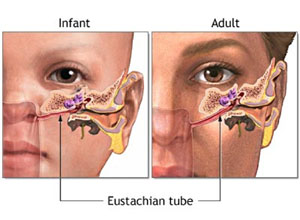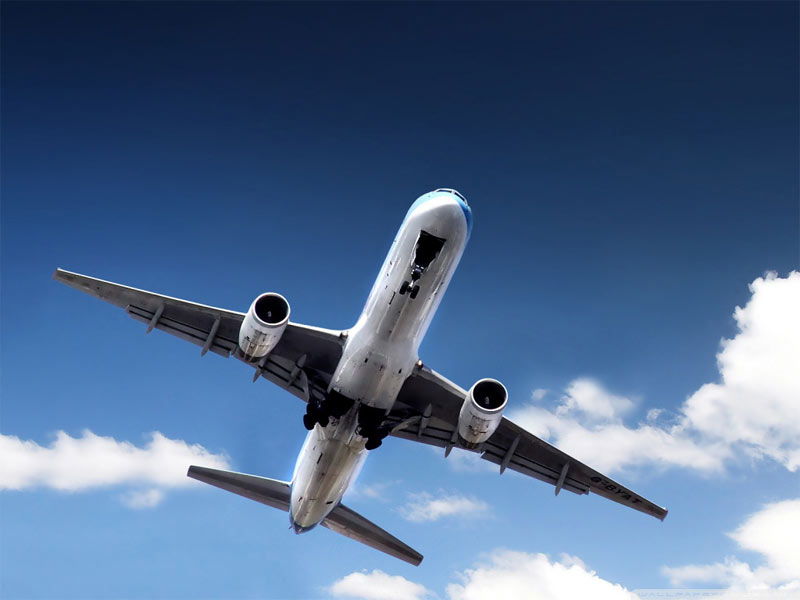Information about the ears and flying
Why do ears pop?
- Normally, swallowing causes a little click or popping sound in the ear
- This occurs because a small bubble of air has entered the middle ear, through the passage from the back of the nose
- It passes through the Eustachian tube, a passage about the size of a pencil lead that connects the back of the nose with the middle ear
- The air in the middle ear is constantly being absorbed by its membranous lining and re-supplied through the Eustachian tube
- In this way, air pressure on both sides of the eardrum stays about equal. If, and when, the air pressure is not equal the ear feels blocked
The Eustachian tube
- The Eustachian tube can be blocked, clogged or obstructed, for a variety of reasons – when that occurs, the middle ear pressure cannot be equalized
- The air already there is absorbed and a vacuum occurs, sucking the eardrum inward and stretching it
- Such an eardrum cannot vibrate naturally, so sounds are muffled or blocked, and the stretching can be painful
- If the tube remains blocked, fluid will seep into the area from the membranes in an attempt to overcome the vacuum – called “fluid in the ear,” serous otitis
- The most common causes for a blocked or clogged Eustachian tube are the common cold, sinus infections and nasal allergies – a stuffy nose leads to stuffy ears because the swollen membranes block the opening of the Eustachian tube

Ear problems are the most common medical complaint of airplane travellers
The Ears and Flying – how can air travel cause hearing problems?
- Air travel is sometimes associated with rapid changes in air pressure
- To maintain comfort, the Eustachian tube must open frequently and wide enough to equalize the changes in pressure
- This is especially true when the airplane is landing, going from low atmospheric pressure down closer to earth where the air pressure is higher
- Any situation in which rapid altitude or pressure changes occur creates the problem
- Divers, as well as pilots, are taught how to equalize their ear pressure – anybody can learn the trick too.
How to unblock the ears?
- Chewing gum activates the muscle that opens the Eustachian tube – this is especially helpful just before take-off and during descent
- Yawning is even better
- If yawning and swallowing are not effective, pinch the nostrils shut, take a mouthful of air, and direct the air into the back of the nose as if trying to blow the nose gently
- The ears have been successfully unblocked when a pop is heard
- This may have to be repeated several times during descent. Even after landing, continue the pressure equalizing techniques and the use of decongestants and nasal sprays
How to help babies unlock their ears?
- Babies cannot intentionally pop their ears, but popping may occur if they are sucking on a bottle or pacifier
- Feed your baby during the flight, and do not allow him or her to sleep during descent
- Children are especially vulnerable to blockages because their Eustachian tubes are narrower than in adults.
Are the use of decongestants and nose sprays recommended?
- Many experienced air travellers use a decongestant or nasal spray an hour or so before descent
- This will shrink the membranes and help the ears pop more easily
- Travellers with allergy problems should take their medication at the beginning of the flight for the same reason – however, avoid making a habit of nasal sprays – after a few days, they may cause more congestion than relief
Tips to prevent discomfort during air travel
- Patients in good health can take a decongestant or nose spray approximately an hour before descent to help the ears pop more easily
- Avoid sleeping during descent
- Chew gum just before take-off and during descent and when inflating the ears, only use gentle pressure
- Postpone an airplane trip if a cold, sinus infection, or an allergy attack is present
- Consult with an ENT surgeon if you have problems with your ears whilst flying




